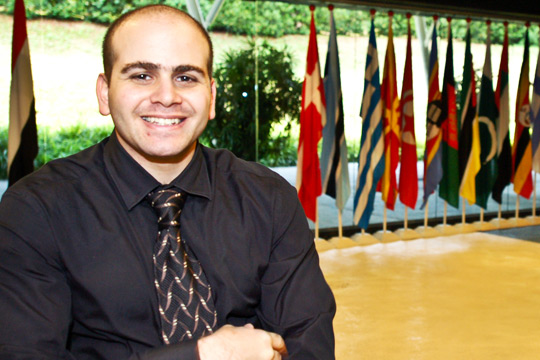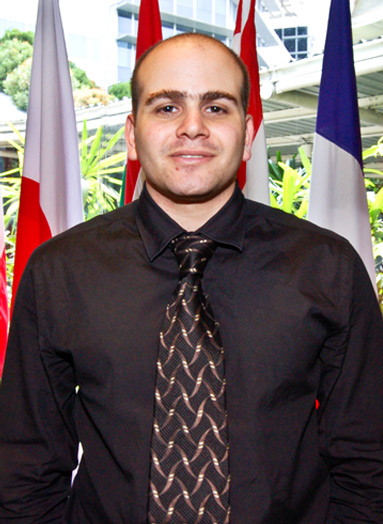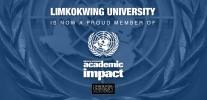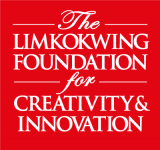
Jihad Abou Ghosh
Manager for the International Development of Middle East Market, Limkokwing University, 2009
Bachelor of Business (Hons) in International Business
The uniqueness of Malaysia is its ability for various cultures to co-exist in one area. As an Islamic state, Malaysia has experienced less obstacles to progress and development than other countries also considered Islamic.
20 February 2009
A Man of Many Nations
Written by Catalina Rembuyan
Jihad Abou Ghosh, Manager for the International Development of the Middle East Market at Limkokwing University, is a Palestinian who has lived in Saudi Arabia, Tanzania, Malaysia and the United States. Here he shares with us his opinions on Malaysia’s role as a progressive Islamic country and his job as the go-between for Limkokwing University and the Middle East. Catalina Rembuyan reports.
Jihad Abou Ghosh is a man who defies any attempt to define himself by international boundaries. The Limkokwing University of Creative Technology alumnus and current Manager for International Development in the Middle East Market for that very same institution, has lived in and weathered many countries during the twenty-five years of his life.
“There’s nothing I don’t like about Malaysia,” said Jihad, when asked about the things he liked the least about the country that has become his most recent home. “The people here are friendly, the country is very progressive, so perhaps the only thing I can complain about is the unpredictable weather,” he adds with a jocular smile.
One of the things I like about Malaysia is its ability to stand on its own two feet and develop a progressive and vibrant economy without being overtly dependent on external forces.
Jihad has been living in many countries in his life. Born in Saudi Arabia before his family moved to Tanzania for a while and then later returned to Saudi Arabia, where they lived for fourteen years.
“The uniqueness of Malaysia is its ability for various cultures to co-exist in one area,” he explained, while adding that, “As an Islamic state, Malaysia has experienced less obstacles to progress and development than other countries also considered Islamic.”
Jihad, who graduated from Limkokwing University with a Bachelors’ Degree in International Business, did not begin his journey as an undergraduate in Malaysia. He was initially a student at Pittsburgh in Pennsylvania, the United States, for three years.
“Unfortunately I began to feel very uncomfortable there, especially with the paranoia that shrouded the country after 9-11,” he confessed. The discomfort prompted him to seek calmer pastures elsewhere, so he decided to participate in an exchange programme that took him to Cyprus.

He did not remain long in Cyprus before he set his eyes on another Muslim country located in the heart of Southeast Asia. Jihad then moved on to Malaysia, where he spent his final year of study at Limkokwing University before graduating in 2006.
“One of the things I like about Malaysia is its ability to stand on its own two feet and develop a progressive and vibrant economy without being overtly dependent on external forces, especially the West,” Jihad explained. “Many countries in the Middle East have enough resources to become very powerful economies, but local politics and an over-dependency on the West has prevented them from achieving as much as they possibly could.”
“Malaysia has thus far successfully avoided that situation, and as a result of it has been able to form an economy that is relatively independent and still very vibrant,” he said.
After graduating from Limkokwing University, Jihad continued to remain in the university, only this time serving as its Manager for International Development of the Middle East market. It is a job that he enjoys doing, as it enables him to make full use of his well-versed of the Middle East while allowing him to expand on his capabilities and earn more experience in the various duties that fall under his job scope.
“As the person in charge of establishing Limkokwing University’s presence and branding in the Middle East market, my job scope is not limited to any specific field,” Jihad explains. “I have to find different ways of tapping into the market and reaching into our target demographic, which requires me to think creatively and strategically at all times.”
“It is great work because I have a job scope that is continually expanding into different sectors, which is excellent for someone who is trying to develop his portfolio and gain a head start in his professional life,” he added.
If you set a very rigid structure saying that you have to achieve something at a certain time period, then you are setting yourself up for failure, the only thing you can plan is that you plan to succeed.
When asked about his plans for the future, Jihad readily admits that he is not one who is inclined to set plans in stone. “You can’t control a lot of the events that happen in your life, because you can’t even predict what will happen in a single day,” he said.
“If you set a very rigid structure saying that you have to achieve something at a certain time period, then you are setting yourself up for failure,” he explained. “The only thing you can plan is that you plan to succeed.”
Jihad is very clear about what consists of success in his personal set of definitions. “I have no intention of quantifying success by values, so the most important thing is to do something that you are happy with,” he said.
When asked if he considers himself successful because he is apparently doing that in his life, Jihad explains, “No one can really define himself or herself as successful. Once you do, you put a cap on what you can achieve and impose limitations on your potential to expand further.”
“On the other hand, failure is not an option in anyone’s life. Failures are in fact keys to success, because your failures – I prefer to call them mistakes – will teach you how to adapt.”
Jihad, who firmly believes that one neither fails nor succeeds for anyone except themselves, sums up his definition of failure by quoting an oft-mentioned analogy: “It’s not about how hard or how often you fall down, it’s about how often and how fast you get back up again.”
Although he readily admits that his work at Limkokwing University does not often lend him much time to himself, whenever Jihad can find time, he will take the opportunity to travel. Jihad also enjoys meeting new friends and socializing.



































